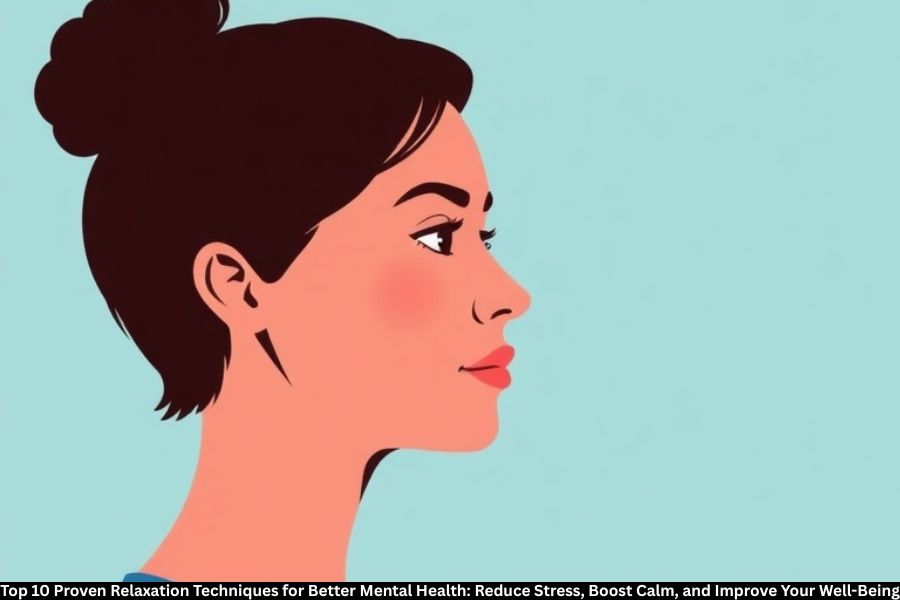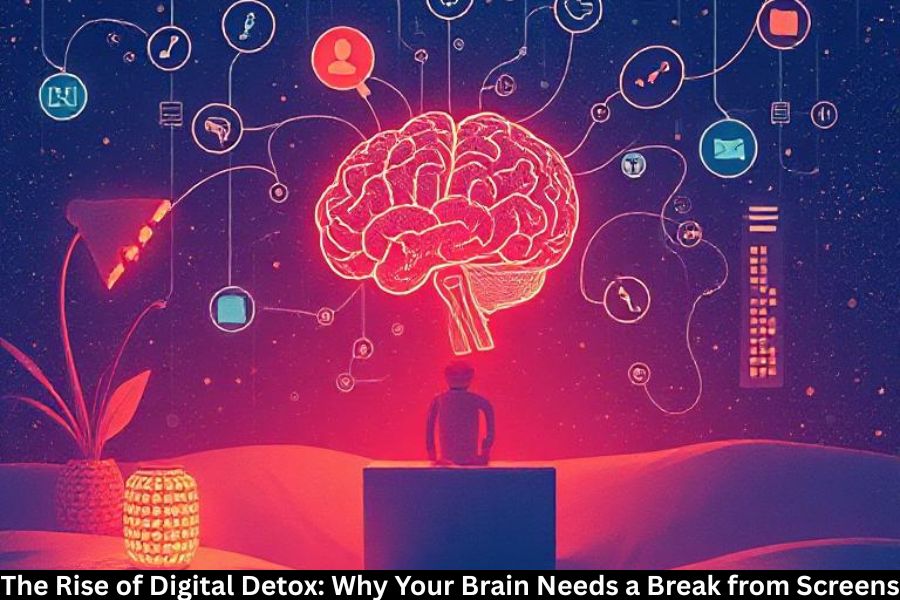In today’s fast-paced world, stress and anxiety have become constant companions for many of us. It’s easy to feel overwhelmed, mentally drained, or emotionally exhausted. But what if there were simple, effective ways to calm your mind, reduce stress, and improve your overall mental health? Relaxation techniques are the key. They help your mind and body reset, rejuvenate, and regain balance. In this guide, we’ll explore the best relaxation techniques for better mental health, explaining step by step how you can use them in your daily life.
What is Mental Health?
Mental health is more than just the absence of mental illness. It’s the overall state of your emotional, psychological, and social well-being. Good mental health helps you handle stress, relate to others, and make sound decisions.
Common Causes of Stress and Anxiety
Stress can arise from work pressure, financial worries, relationship challenges, or even social media overload. Chronic stress affects both your mind and body, leading to anxiety, poor sleep, fatigue, and even physical ailments. Recognizing the sources of stress is the first step in managing it effectively.
Why Relaxation is Crucial for Mental Health
How Relaxation Techniques Improve Mental Health
Relaxation techniques reduce the production of stress hormones, calm the nervous system, and improve overall brain function. Regular practice can:
- Lower anxiety levels
- Reduce depression symptoms
- Improve focus and concentration
- Enhance sleep quality
- Promote a positive mood
Benefits of a Relaxed Mind
When your mind is calm, you think more clearly, make better decisions, and respond to challenges more effectively. It also strengthens your resilience, helping you bounce back from setbacks faster.
Top 5 Relaxation Techniques
1. Deep Breathing Exercises
Deep breathing is one of the simplest and most powerful relaxation techniques.
What is 4-7-8 Breathing?
The 4-7-8 breathing method is a relaxation technique developed by Dr. Andrew Weil. It involves:
- Inhaling through the nose for 4 seconds
- Holding the breath for 7 seconds
- Exhaling slowly through the mouth for 8 seconds
This pattern slows your heart rate and calms your mind almost instantly.
How to Do Deep Breathing Effectively
- Sit or lie comfortably.
- Close your eyes and focus on your breath.
- Take a deep, slow breath in, filling your lungs completely.
- Hold for a few seconds.
- Exhale slowly and completely.
- Repeat for 5–10 minutes daily.
2. Progressive Muscle Relaxation (PMR)
PMR helps you become aware of tension in your body and release it consciously.
Step-by-Step Guide
- Sit or lie down comfortably.
- Start from your toes and work your way up.
- Tense each muscle group for 5 seconds, then release.
- Notice the sensation of relaxation after releasing tension.
- Continue up to your head, including legs, abdomen, arms, and face.
Benefits for Mental Health
- Reduces anxiety and physical tension
- Improves sleep quality
- Enhances body awareness
3. Mindfulness Meditation
Mindfulness meditation encourages living in the present moment without judgment.
How Mindfulness Works
It involves focusing on your breath, body sensations, or surroundings. This practice trains your mind to stay present and prevents overthinking.
Tips for Beginners
- Start with 5–10 minutes daily
- Sit quietly in a comfortable place
- Focus on your breath and gently bring attention back if your mind wanders
4. Yoga for Mental Relaxation
Yoga combines physical postures, breathing, and meditation to relieve stress.
Simple Poses for Stress Relief
- Child’s Pose: Stretches the back and calms the mind
- Cat-Cow Pose: Releases tension in the spine
- Legs-Up-The-Wall Pose: Promotes relaxation and circulation
How Yoga Impacts Mental Health
Yoga reduces cortisol levels, improves mood, enhances mindfulness, and strengthens emotional resilience.
5. Guided Imagery and Visualization
Guided imagery uses mental pictures to promote calmness.
How to Use Imagery to Relax
- Sit or lie comfortably.
- Close your eyes and imagine a peaceful place (beach, forest, or mountain).
- Visualize details—sounds, smells, textures.
- Spend 5–15 minutes immersed in this imagery.
Examples for Daily Practice
- Visualize yourself completing a stressful task calmly.
- Imagine walking through a serene nature trail after work.
Additional Techniques to De-stress Your Mind
Listening to Calming Music
Soft, instrumental, or nature-inspired music can lower stress hormone levels and promote relaxation.
Journaling and Expressive Writing
Writing down your thoughts helps release negative emotions and gain perspective.
Spending Time in Nature
Fresh air, sunlight, and green surroundings naturally reduce cortisol and improve mood.
Aromatherapy and Essential Oils
Lavender, chamomile, and sandalwood scents can reduce anxiety and improve sleep quality.
How to Relax Your Mental Health Daily
Creating a Relaxation Routine
- Dedicate 20–30 minutes daily to relaxation
- Mix techniques like deep breathing, meditation, or yoga
- Keep a quiet, comfortable space for practice
Combining Multiple Techniques
Pairing techniques, such as deep breathing with guided imagery, enhances relaxation and helps you manage stress better.
Practical Tips for a Stress-Free Mind
- Reduce Negative Triggers: Identify and limit stress-inducing habits.
- Practice Gratitude: Write down three things you’re grateful for daily.
- Limit Digital Overload: Reduce social media scrolling and screen time.
Common Mistakes to Avoid When Trying to Relax
- Overthinking the Process: Relaxation should feel natural, not forced.
- Expecting Instant Results: Mental calmness improves gradually with practice.
- Neglecting Physical Health: Sleep, nutrition, and exercise complement relaxation.
Conclusion
Relaxation techniques are not just luxuries—they are essential tools for better mental health. From deep breathing and meditation to yoga and guided imagery, these methods help reduce stress, enhance focus, and promote overall well-being. By making relaxation a daily habit, you can cultivate a calmer, happier, and healthier mind. Start small, stay consistent, and enjoy the journey to a stress-free life.
FAQs
1. What are 5 relaxation techniques?
Deep breathing, progressive muscle relaxation, mindfulness meditation, yoga, and guided imagery.
2. How do I relax my mental health?
Practice daily relaxation techniques like meditation, deep breathing, journaling, and spending time in nature.
3. How do relaxation techniques improve mental health?
They reduce stress hormones, improve mood, enhance focus, and strengthen emotional resilience.
4. What is 4-7-8 breathing?
A breathing technique where you inhale for 4 seconds, hold for 7 seconds, and exhale for 8 seconds to calm the mind.
5. How to stress-free mind?
Create a daily relaxation routine, limit digital overload, practice gratitude, and engage in calming activities like yoga or meditation.


